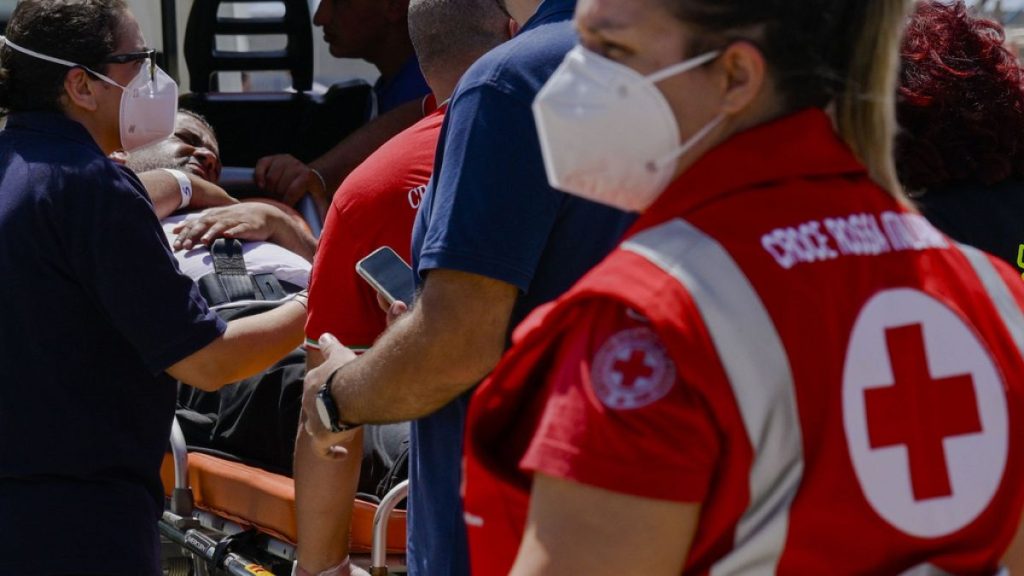The Mediterranean Sea is known as the deadliest migration route in the world, with over 3,150 migrants reported dead or missing last year according to the International Organization for Migration (IOM). Recently, two tragic shipwrecks off Italy’s southern coast resulted in the deaths of at least 11 migrants and left 64 people missing. In one incident, a boat carrying migrants from Turkey caught fire and overturned, with survivors reporting that the vessel had been at sea for eight days before the disaster. Another incident near the island of Lampedusa saw rescue workers discovering a wooden boat full of water, with 10 migrants found dead below deck.
The Italian coastguard and other aid agencies quickly responded to these tragedies, with the Italian Maritime Rescue Coordination Center diverting nearby merchant vessels to assist in rescue operations. Frontex, the European border and coast guard agency, also provided support to the survivors. Despite the challenging circumstances, Doctors Without Borders (MSF) offered psychological assistance and first aid to the survivors, highlighting the severe conditions that many migrants endure during these dangerous crossings. The survivors, mostly from Iran, Syria, Iraq, Bangladesh, Pakistan, Egypt, and Syria, had each paid around $3,500 for the journey.
Italian authorities have been working to manage the influx of migrants, implementing measures such as advising migrants on how to stay safe during their journey, especially during extreme weather conditions. However, the increasing number of unregistered migrants lacking access to basic facilities poses a significant challenge for authorities. The EU has also implemented stricter immigration controls, and Italy’s government has introduced laws aimed at reducing the number of sea crossings, including restrictions on charity rescue ships accused of encouraging migration. Despite these efforts, the tragedies in the Mediterranean continue to highlight the dangers faced by migrants seeking a better life in Europe.
The EU’s efforts to manage migration routes and prevent tragedies in the Mediterranean have sparked debate, with critics arguing that stricter controls may push migrants to take even more dangerous routes. The focus on reducing sea crossings and targeting rescue ships has raised concerns about humanitarian principles and the protection of human rights. While authorities work to address the challenges of migration, the ongoing loss of life in the Mediterranean serves as a stark reminder of the urgent need for a comprehensive and humane approach to addressing the global migration crisis.
As the deadliest migration route in the world, the Mediterranean continues to claim the lives of thousands of migrants seeking refuge in Europe. The recent shipwrecks off Italy’s coast are a tragic reminder of the risks that migrants face on these perilous journeys. While efforts are being made to manage immigration and prevent further tragedies, the inhumane conditions that many migrants endure highlight the need for a more compassionate and sustainable approach to addressing the complex issues surrounding migration. Only through coordinated international cooperation and a focus on protecting human rights can the loss of life in the Mediterranean be truly addressed and prevented in the future.













